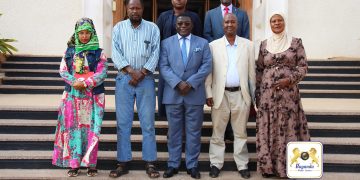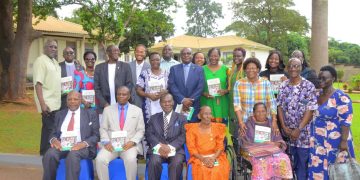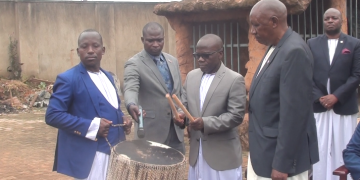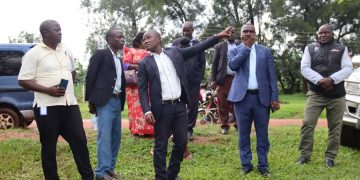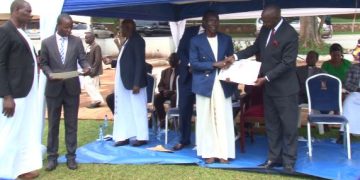By Dauda Mpanga
History is a compulsory subject right up to O’Level in Uganda. Most practising lawyers study history up to A’Level before undertaking a bachelor’s degree in law.
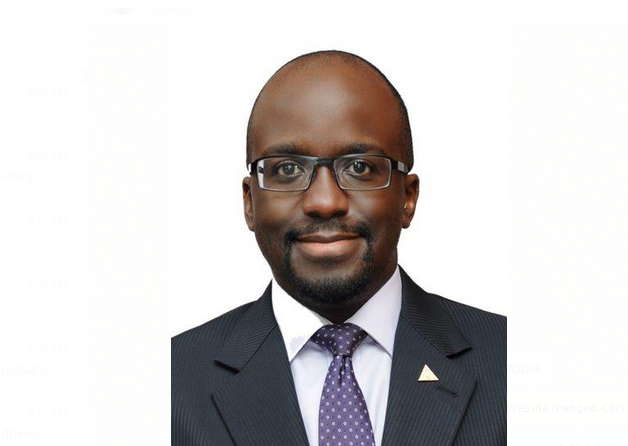
History was one of my favourite subjects and I remain an enthusiast, often reading history books and watching history documentaries in my spare time. My enthusiasm for history has caused me to take an interest in how it is taught, consumed and used in our daily lives and led me to a sad conclusion.
Very unfortunately many people view history merely as an examinable subject. They study history but treat it as little more than an advanced memory test focused on events, dates and personalities.
This is a shortcoming that even afflicts people that announce themselves as learned and intellectual. It is unfortunate because our failure to understand why we study and learn history deprives us of the benefit of the experience of our forebears and dooms us to make the same mistakes that they made with similar or even more catastrophic consequences.
Hence the often heard but little heeded despairing phrase “History repeats itself!” History is inanimate and cannot go about doing anything. It is we, the actors with agency, who ignorant of the experiences of those who came before us, repeat the same mistakes or do the same things hoping for different results.
So, take the example of Uganda’s pre-independence and immediate post-independence history and how it relates to Buganda’s aspirations for a federal system of governance.
There is no shortage of writings and oral history about this very important period in our nation’s birth. But sadly, many people simply regurgitate events, dates and anecdotes about key personalities, such as Ssekabaka Edward Mutesa II, Milton Obote and Ben Kiwanuka, or party acronyms such as UPC, KY and DP without understanding the lessons that this history teaches us for the navigation of our present and future.
They then use this regurgitation as a premise to pronounce that federalism is dead as if the federalism as a system of government was an out-of-date technology like the gramophone or the telex.
In my view, to truly understand the lessons offered by Uganda’s pre and post-independence history, one needs to start with extracting the overarching facts and stripping them from the actors of the day. This is because our opinions about the actors vary and these opinions colour our appreciation of the facts.
These are the basic facts. Uganda was a colonial creation. It was created by the British and no native of this region knew or could truthfully tell you why her borders run as they did. Within those borders were different peoples in terms of ethnicity and culture.
None of these peoples freely and without external interference chose to be part of Uganda. Uganda was imposed on them and its terms were deemed immutable by a world order driven by the imperial powers.
The British chose to exit Uganda according to a timetable about which the natives had little, if any, say. So, the natives faced with the prospect of “self-rule” also known as “independence” had to determine who would run this new alien-imposed entity called Uganda and how the diversity within it was to be maintained and managed.
A federal system of government was chosen as a compromise that would allow for the satisfactory management of native aspirations for the universally recognised right to self-determination without compromising Uganda’s territorial integrity.
This compromise was written into the 1962 “Independence” Constitution. Running Uganda in accordance with the 1962 Constitution needed intricate political compromises to be made and was premised on a culture in which the political actors considered themselves bound by the rules set therein – constitutionalism and the rule of law.
Sadly, the actors did not adhere to the culture of constitutionalism and the rule of law. The political consensus that the British had forged in the lead up to 1962 was forcefully ruptured in 1966 and the attendant federal compromise was abolished.
Would it be accurate to say, therefore, that because of what happened in the 1950’s and 1960’s the federal system of government is an outmoded system of government and aspiration thereto is antiquated? The answer, in my view, is a resounding “no”.
To say otherwise is much the same as saying that I shouldn’t take an afternoon nap because my grandfather died during his afternoon nap in November 1978.
Many of the factors that prevailed then still prevail now. Uganda is still a diverse multi-ethnic and multi-cultural nation. The diverse peoples of Uganda all enjoy the internationally recognised right to self-determination, by virtue of which they ought to freely determine their political status and freely pursue their economic, social and cultural development.
It is inexpedient, if not nearly impossible, to alter the boundaries of Uganda without causing war, massive bloodshed and regional instability. A balance has to be found which enables the fullest enjoyment of the right to self-determination within the confines of the borders of Uganda.
Recent experience has shown us that the decentralisation and districting experiment is not efficient or successful in making governance more effective and contestation for power less sharp.
If we are to avoid a total breakdown of trust in government and the violence and instability that comes when people feel excluded from the “national cake,” we should re-examine the option of federalism as a compromise. It is a system of government.
It cannot and should not be reduced to a matter of some historical events or power contestation between historical figures. Buganda’s aspiration for a federal system of government does not make it a Buganda only affair just like my ownership of a pair of shoes does not mean that all shoes in the world are mine.
Federalism is not antiquated or dead.
The author is the Minister for Special Duties and Research in Buganda Kingdom


